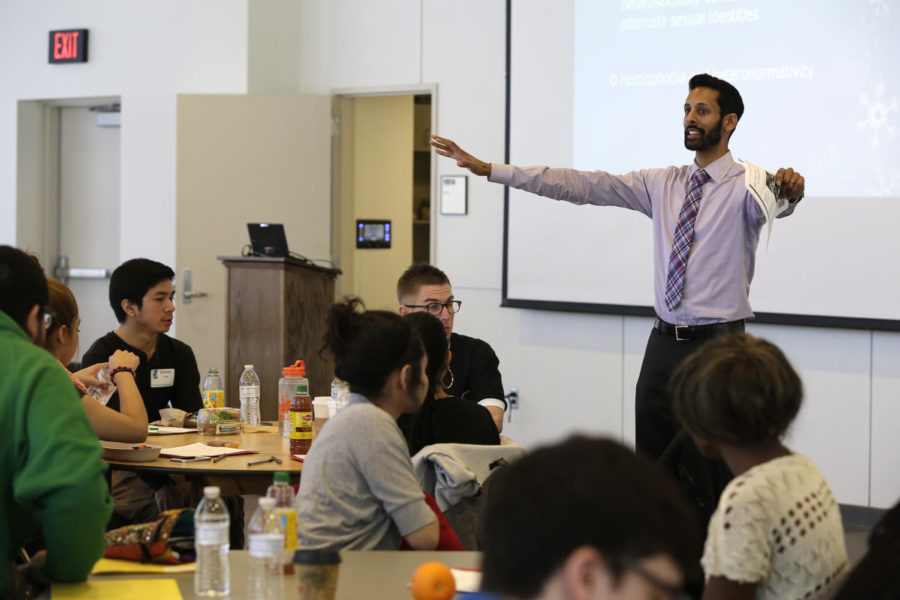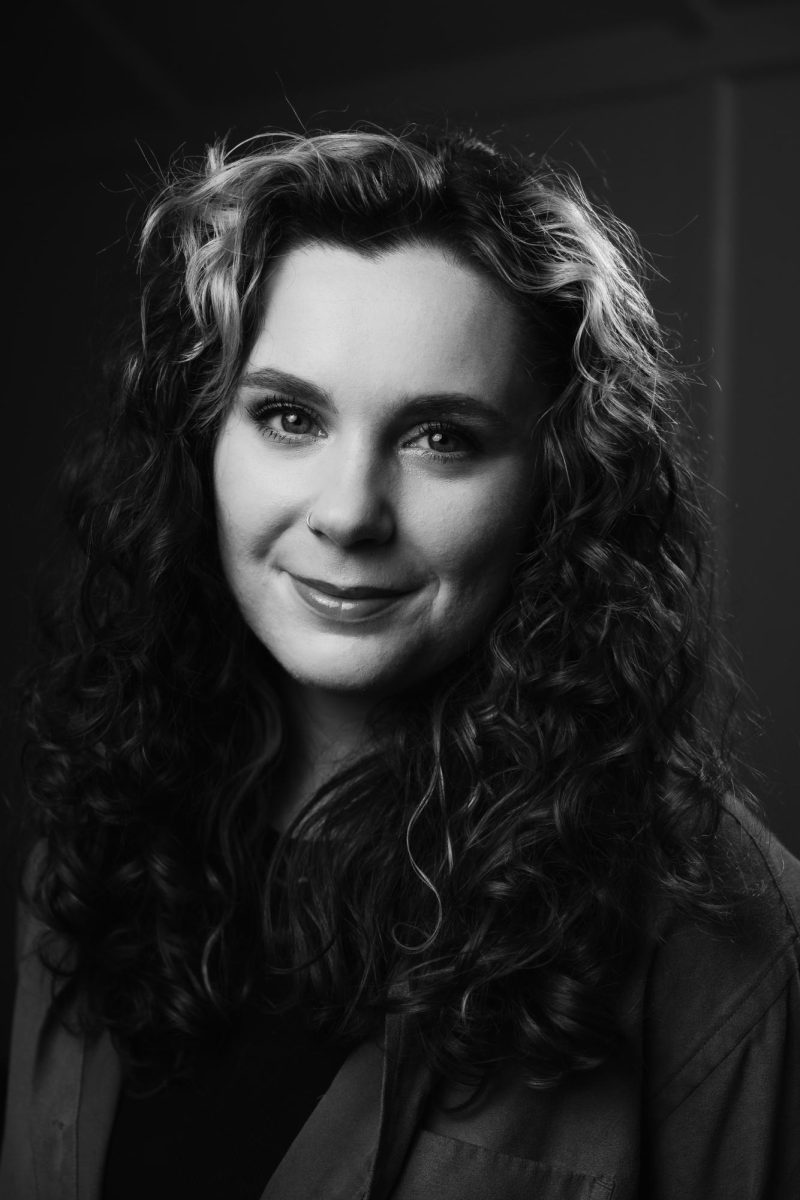15th anniversary of summit to be student-driven
Brian Achenbach/Iowa State Daily
Guest Presenter Vijay Pendakur gives instructions for an exercise to attendees of the Social Justice Summit on Feb. 22 at Hach Hall. Pendakur is the director of the office of multicultural student success at De Paul University.
February 20, 2015
This weekend marks the 15th anniversary of the Social Justice Summit, previously known as the Multicultural Leadership Summit.
Webster’s dictionary defines social justice as “the distribution of advantages and disadvantages within a society.” The goal of this event is to help students become agents of change on campus.
The 2015 Social Justice Summit will be different than previous years. It will be much more student-driven, rather than being guided primarily by a guest facilitator.
This is the third Social Justice Summit for Kevin Merrill, leadership and service coordinator at the Student Activities Center.
“Over the last couple years, we had [speakers] come in and do primarily all the content, all the training, all the activities. This year we wanted to try to use more local expertise and bring in more individuals from the university,” Merrill said. “I was really excited about bringing it back to Iowa State and involving people who do this kind of work day-to-day on campus and in the community.”
Past summits focused on bystander intervention, or how to react to a comment or action that you believe crosses the line, but participants were eager to learn more proactive ways of instigating change.
“One of the critiques in the past was that we didn’t spend as much time on helping students understand how to create their own social change or how to involve themselves to make some kind of impact on campus,” Merrill said.
The event will not be focusing on any single issue, but rather letting students guide the conversation and choose topics that are meaningful to them.
The activities on Feb. 20 will be focused on introspection. Participants will think about who they are, the individual experiences that make them unique and connect them to others, and how they fit into society.
The focus of the following day will be on systems of oppression, how each participant’s experiences interplay with those systems and then creating an individual plan of action.
A little more than 40 students have registered for this year’s summit, but Merrill stressed that numbers are not nearly as important as the effort put forth by participating students.
“If we can find 40 dedicated students who want to talk about these issues for three hours on Friday and seven hours on Saturday, that is, to me, really outstanding,” Merrill said. “They’re dedicated enough to give up that time, and they want to talk about this and make a change.”
Even if issues of equality, diversity and social justice don’t impact a particular student in their everyday life, Merrill believes they can benefit from this event.
“I think that there’s value in hearing other people’s stories,” he said.
The Social Justice Summit will take place Feb. 20 and 21 at the Lynn Fuhrer Lodge in Ames. The Friday session is from 6 to 9 p.m., and the Saturday session is from 9 a.m. to 4 p.m. The event is free for ISU students.
The Social Justice Summit is presented by the Student Activities Center, the Office of Multicultural Student Affairs, and the Margaret Sloss Women’s Center. Registration is closed, but limited last-minute spots may be available. Email [email protected] for more details.

















